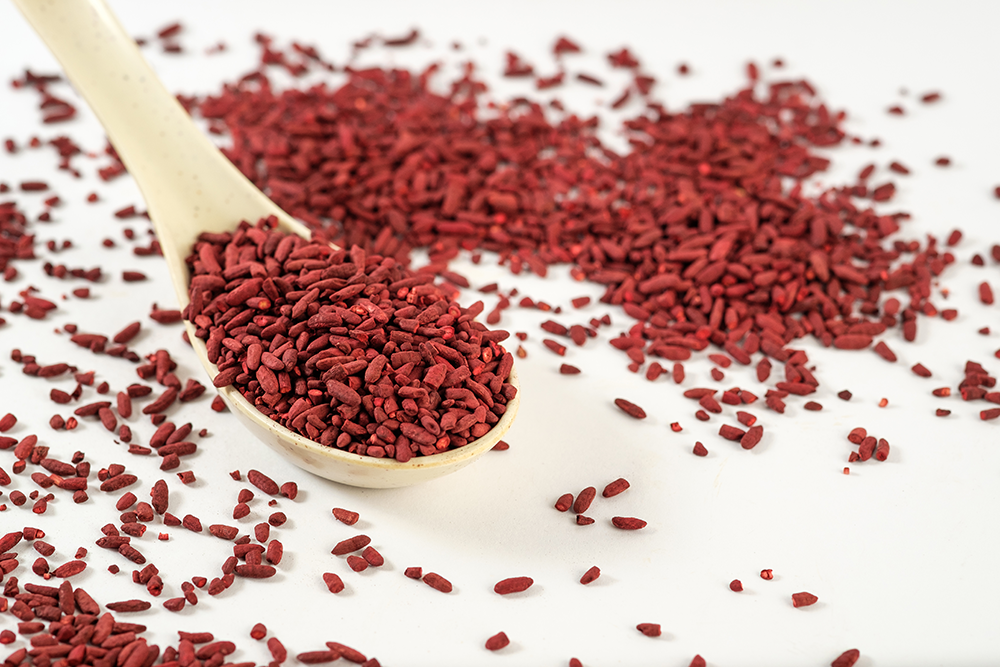Phytosterols, Red Yeast Rice, and Cholesterol

Phytosterols (plant sterols) are similar in structure to cholesterol. Consuming phytosterols as part of your diet can decrease total cholesterol because molecularly they are very similar to cholesterol. As you digest phytosterols they can prevent cholesterol from being absorbed into the bloodstream and therefore the cholesterol that is not absorbed is removed from the system as waste.
Red yeast rice is a fermented product where red yeast has grown on rice. It acts as a natural statin drug in that it forms monacolins (HMG-CoA reductase inhibitors) that lower cholesterol levels. Red yeast rice contains isoflavones, sterols, and monounsaturated fats that also promote lower cholesterol levels.
A study published April 2012 in the Journal of Dietary Supplements studied 18 individuals with high cholesterol. Daily for six weeks the 18 participants received a combination of phytosterols and red yeast rice.
Study results found the supplement combination decreased total cholesterol 19% and LDL Cholesterol 33%. No changes were seen in triglycerides, HDL cholesterol, blood pressure, BMI, or liver function.
For comparison, a 1999 study published in the Journal of the American Medical Association found statins to reduce LDL Cholesterol 28%.
Granted, this wasn’t a large study, but it does show there is likely a way to achieve the results of statins (or even better results) without needing the medication and the potential side effects.
Explore all your options with your doctor.
Keep in mind that even though red yeast rice is naturally occurring, it can deplete coenzyme Q10 levels just like statin drugs. Coenyzme Q10 plays a key role within every cell for energy production. Some coenzyme Q10 deficiency symptoms include aches/pains, fatigue, sore muscles, weakness, and shortness of breath. Be sure to supplement coenzyme Q10 if taking red yeast rice or statin medications.
Access the free e-course How to Lower Cholesterol in 8 Simple Steps at http://lowercholesterolwithlisa.com.
 |
Heart Health Made Easy: Master the Basics to Lower Blood Pressure and Cholesterol for a Longer, Healthier Life
|
Lower LDL Cholesterol with Pistachios
I think it’s fairly well known that walnuts provide some heart health benefits, but were you aware pistachio’s can be a good choice as well?
Pistachios are a good source of many nutrients, vitamins, and minerals.
A 1 ounce (28 grams) serving of pistachios provides:
170 calories
6 grams protein
2.9 grams fiber
73.4 mg omega 3 fatty acids
59.9 mg phytosterols
Pistachios are also a good source of copper, manganese, vitamin B6, thiamin, magnesium, and phosphorous. They also provide lutein and zeaxanthin, two carotenoids associated with a lower risk of age-related macular degeneration.
But, how do pistachios positively impact cholesterol and heart health?



